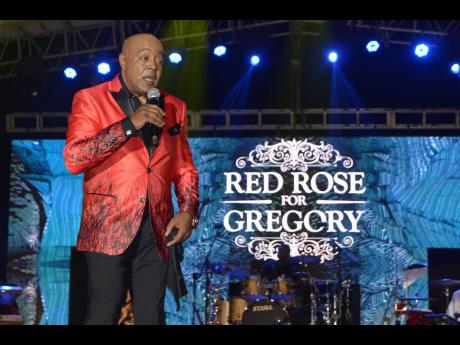Kicking the habit – getting high on music
The Gleaner presents the final in the week-long series High Note , exploring the complexities of substance abuse in local entertainment and methods of treatment.
Many entertainers have battled with drug addiction, from Rick James, Kurt Cobain, Amy Winehouse and Eminem to our very own Gregory Isaacs and Ninja Man. Consultant psychiatrist Dr Geoffrey Walcott explained that abusers cannot be forced into rehabilitation and have to willingly seek treatment through the encouragement of a healthy social circle. “Treatment is multifaceted, and it isn’t what most Jamaicans think it is – ‘let’s hog-tie them and bring them to the hospital for a washout’,” Walcott told The Gleaner. “All therapeutic modalities are psychological and social, so it’s not about washing things out of them.”
He continued, “Treatment starts with family and friends. they have to bring the person from a space where they are not thinking about change to one where they are able to change,” he said. “There are specific techniques that a therapist can teach family members that will help get the addict to that level. it is only at that point the institution will accept them. But that does not mean the intervention hasn’t started. If the person can see all his loved ones around, and they are saying he has a problem, then maybe he will come to see he has a problem and become motivated to engage in a long-term therapeutic process.”
The commitment from all parties should not be taken lightly; Walcott noted that transformation may take up to 10 years. Recovering addicts are also tasked with finding healthy alternatives to drugs and starting a new life. “A lot of people tend to gloss over this, but the drugs provide benefits to the person using them, that’s why they keep using it, so you have to replace that in a healthy way,” he said. “The drug addiction itself is really part of a bigger problem, which is the person’s life is chaotic and destructive. You have to build new social connections, new patterns, new interests. you literally have to reconstruct the person’s entire life to get them away from drugs.”
Isaacs’ wife, June, is au fait with this process, having staged several interventions to get him help. Now she offers help to the Patricia House rehabilitation centre through part proceeds from her annual concert, Red Rose for Gregory.
In an ironic twist, June said her husband’s battle allowed her to find her purpose. I feel refreshed to know that I can really help someone that is going down that path,” she said. “Most of them cannot afford it, a lot of them are on the streets, and Patricia House is playing a very good role in housing some of them, educating them, and finding some of them jobs. I have suffered through this drug, but now I’m in a position to help, so I feel accomplished.”
Through the Gregory Isaacs Foundation, she has partnered with the National Council on Drug Abuse (NCDA) to host school tours during November ( drug awareness month), during which they educate youth about the dangers of drugs and promote abstinence. Entertainers like deejay Bounty Killer and comedian Owen ‘Blakka’ Ellis have also partnered with the NCDA in sharing their stories with youth about overcoming marijuana addiction and the dangers of drugs.
Speaking to The Gleaner, the NCDA’s director of client services, Collette Kirlew, outlined plans to do more for the entertainment fraternity.
She said “We’ll be partnering with the Jamaica Association of Composers, Authors and Publishers (JACAP), starting July, to offer counselling for those persons who want to get help with their drug use,” she said. “We’ll be doing public education as well, so when they have their forums and meetings, they will invite us to make a presentation, and we’ll be giving them information to send out to their members on a monthly basis.”
This will only be beneficial to JACAP members, but Kirlew is imploring others to join the cause of substance-abuse prevention and reduction.
“A lot more needs to be done, and so I want to make a public appeal to any artiste, musician, anybody in the entertainment industry to partner with us and help spread the word,” she said.
Artiste manger Copeland Forbes is pleased with the trajectory of new-generation acts who he said have taken heed after seeing the demise of some of their forerunners.
“The oldsters copy it from the the older rock-and-roll people as it was the lifestyle then, whereas this new crop of artistes will smoke a spliff, but dem nah get involved inna di hard drugs anymore. I am happy for that turnaround, and mi haffi commend them for it.”
June shared this sentiment and added, “I just want musicians to get high off their music.”


